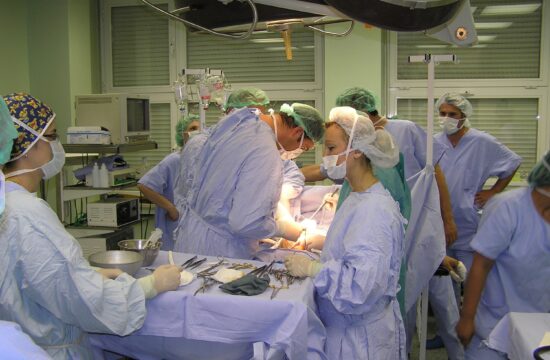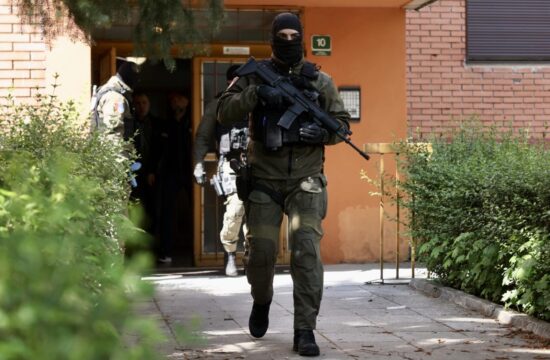
Matthew Field, the Ambassador of the United Kingdom to Bosnia and Herzegovina, wrote in his blog about the Englishwoman Adeline Pauline Irby, popularly known as Miss Irby, who left an indelible mark in Sarajevo.
Below is the entire text written by Ambassador Field:
“Educator. Writer. Humanitarian. Suffragist. I will start by admitting that I did not know the name Adeline Paulina Irby before I began this job. In fact, when I picked up the shiny first edition of ‘Žene BiH’, it was a surprise to find one of these women of BiH, beautifully illustrated by Ajna Zlatar, was in fact a nineteenth century Brit. I then learned about the streets named after her in both Sarajevo and Belgrade, the stained glass window dedicated to her in the Congregational Church of the Holy Mother in Sarajevo, receiving the order of St Sava, and the annual commemorations at her graveside and across the region. Who was this remarkable Miss Irby? And what might she be doing if she were alive today, faced with the humanitarian crisis unfolding across Europe.
The story is known already to many, but bears repeating.
In 1858 Miss Irby was travelling through the spa towns of central Europe, when she and her companion were arrested in the Carpathian mountains for their ‘pan-Slavist tendencies’ and suspected spying. Soon released, I like to think this encounter actually triggered their keen interest in the region further south, and they travelled to what is now Albania and Serbia to see for themselves the situation for the ‘Southern Slavs’.
What Miss Irby saw there greatly troubled her, particularly the repressive conditions for women and girls amongst the Serb population, sparking a commitment that lasted the rest of her life. A contemporary and friend of Florence Nightingale, Miss Irby coordinated with her on successfully raising both awareness and funds through the UK press. With these resources she was able to open a school in Sarajevo, catering to under-represented and often forgotten children, later opening further schools in Dalmatia, Slavonia and elsewhere in the region, reaching thousands more. This work was extended through food relief and other support to refugees. The books Miss Irby and her companions wrote served to confront, and started to reverse, ingrained prejudice in the UK about the region and its people. Miss Irby remained committed to the lasting value of education, especially for girls, and when she died in 1911 she left all of her money the cause.
This bare portrait is impressive enough in itself, but it cannot begin to express the huge challenges and resistance that Miss Irby must have faced. Educating girls from even well-off backgrounds, let alone the poor and destitute who came to make up her students later on, was strongly opposed. At times, religious leaders from all sides denounced her and her schools. Her compassion crossed divides of belief, ethnicity and status. Her work blurred the boundary between education and humanitarian precisely because she refused to stand aside when faced with injustice, including when the conflicts of the 1870s displaced thousands, so she set up orphanages and shelters. Schools and food relief remained her great priorities.
Miss Irby was not alone in this work, nor in her commitment to educating girls. Staka Skenderova was another trailblazing educator, activist and writer, credited with opening Sarajevo’s very first school for female students. Working closely with Miss Irby, Skenderova is another larger than life character, rightly also portrayed in “Žene BiH”, defying societal expectations and making a real difference in the lives of generations of young women and girls.
The strength of gratitude towards Miss Irby, who was buried at her choice in Sarajevo, was evident in the 15,000 reported to have attended her funeral in 1911. That legacy has continued down through the history of this entire region, hence the streets still named after her in Sarajevo and Belgrade. She may have helped create a greater appreciation of the need for girls’ education, but the work continues today, all over the world, to ensure every society can benefit from the lifelong contribution of all of its young people.
Today we all see the lines of families fleeing the terrible conflict in Ukraine. Reflecting on her story, and the stories of those around her, I cannot help but be impressed once more with the impact they made – a good reminder to pick up one of the many books detailing her remarkable life. And more importantly, when confronted with such inhumanity to fellow people, a reminder of the difference that all of us as individuals can make.”





Kakvo je tvoje mišljenje o ovome?
Budi prvi koji će ostaviti komentar!